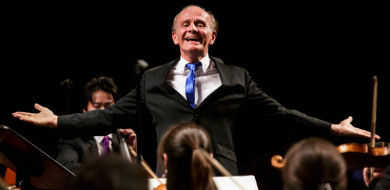Chopin was a musician who didn’t like performing. He was in his element not in the concert hall playing preordained concertos for mass audiences, but in the salon, improvising for his friends, or alone. During the course of his short, blighted life, he gave only around 30 formal concerts. When he performed in Paris in 1841, his lover, the novelist George Sand, wrote to their friend, the singer Pauline Viardot, about his attitude: ‘He does not want any poster, he does not want any programmes, he does not want a large audience,’ she grumbled. ‘He does not want anyone to talk about it. He is frightened of so many things that I have suggested to him that he should play without candles or audience on a dumb piano.’ In short, Chopin was no easy character. He was fragile, fussy and precious; he was oversensitive about his large nose. But let Chopin sit down at a piano and he was in his element. He was never more his true self than in improvisation, and in those parts of his works where he evokes it: the passage in the Fourth Ballade in which he extends and distorts the timing of its most sensual melody over a shimmering wash of notes, for example, or the reverie in the Barcarolle before the return of the main theme, when the harmonies side-step downwards before the pianist’s right hand flies away into filigree arabesques.
He was fragile, fussy and precious; he was oversensitive about his large nose. But let Chopin sit down at a piano and he was in his element.










